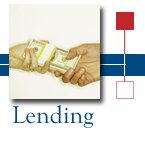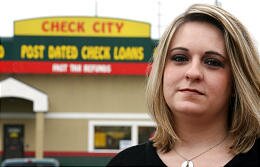Lawmakers Band Together to Repeal Virgina Payday Loan Lending Act
By Paul RizzoPayday Loan Writer
As The Daily Comet states, even when Del. Harvey Morgan introduced legislation in 2002 opening the door to the payday lending industry, he said he knew it wasn’t a good idea.
“I didn’t like payday lending,” he said. “I didn’t think it was appropriate.”
Morgan, R-Gloucester, joined several lawmakers Tuesday in calling for a repeal of the law that allows no faxing payday loan lenders to charge annual interest rates pushing 390 percent. They would face the same 36 percent cap as other lenders.
Morgan said he championed the legislation because the federal government at the time had failed to stop out-of-state banks from setting up shop in Virginia and charging exorbitant amounts for short-term loans. At least with the law, the state could regulate the industry, allowing it to charge no more than $15 per $100 borrowed, with a maximum cash advance payday loan of $500.
Today, the typical Virginia borrower takes out an average of seven payday loans per year from a single lender, often using one loan to pay off another.
“We tried to help Virginians. I think that what we did in Virginia was encourage a chain of debt,” said Del. Glenn Oder, R-Newport News, who broke a prop chain decorated with dollar bills as he spoke at a news conference with lawmakers and VaPERL.
Five bills before the General Assembly aim to repeal the Payday Loan Act, and another six would reform it to require a database to track bad credit payday loans, a cap on the number of loans a borrower can take out at one time or a cooling-off period before a new loan could be issued.
“It’s time for us to go ahead and accept the fact that this was a failed experiment, that there are more alternatives for this set of folks,” said Del. John O’Bannon III, R-Henrico. “At the end of the day I think the time has come, the experiment has been done, it has failed and it’s time to act.”
VaPERL opposes anything other than outright repeal, saying reforms in other states have done little to break the cycle of debt. Even after reforms were enacted, 89 percent of cash advances in Florida go to borrowers with five or more transactions per year, and over half go to those with 12 or more, according to the study.










